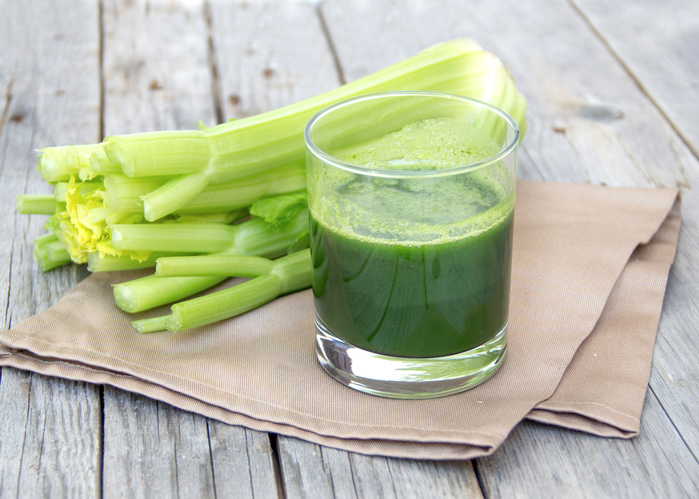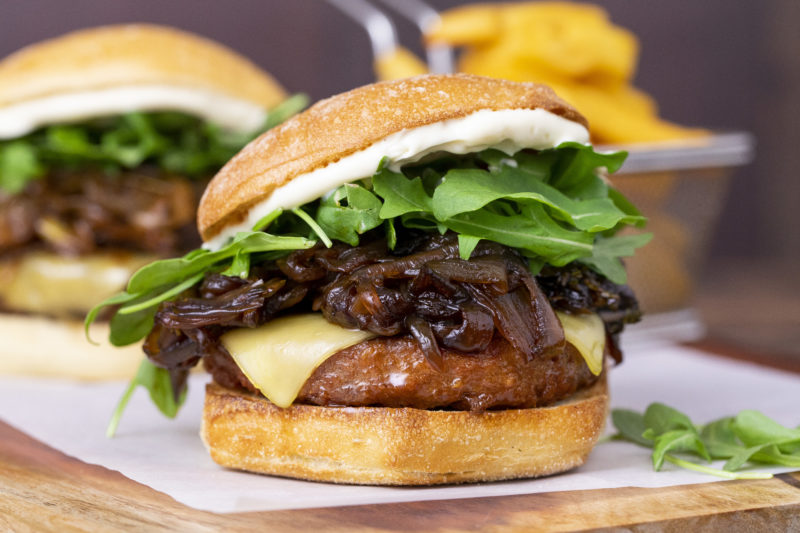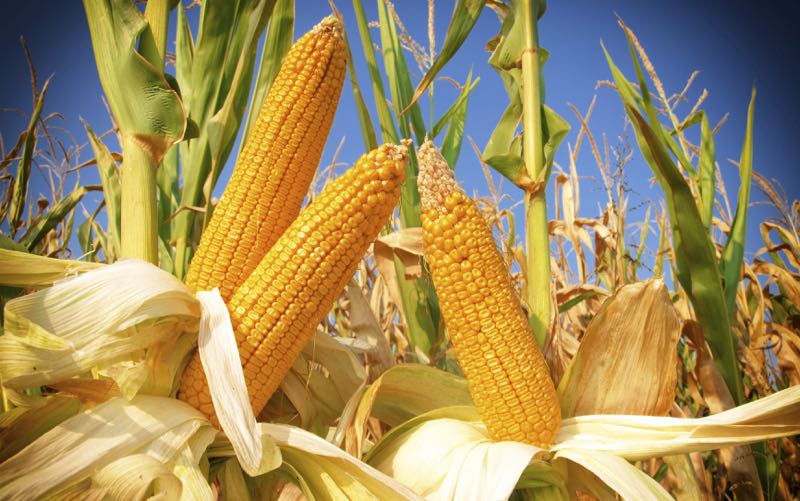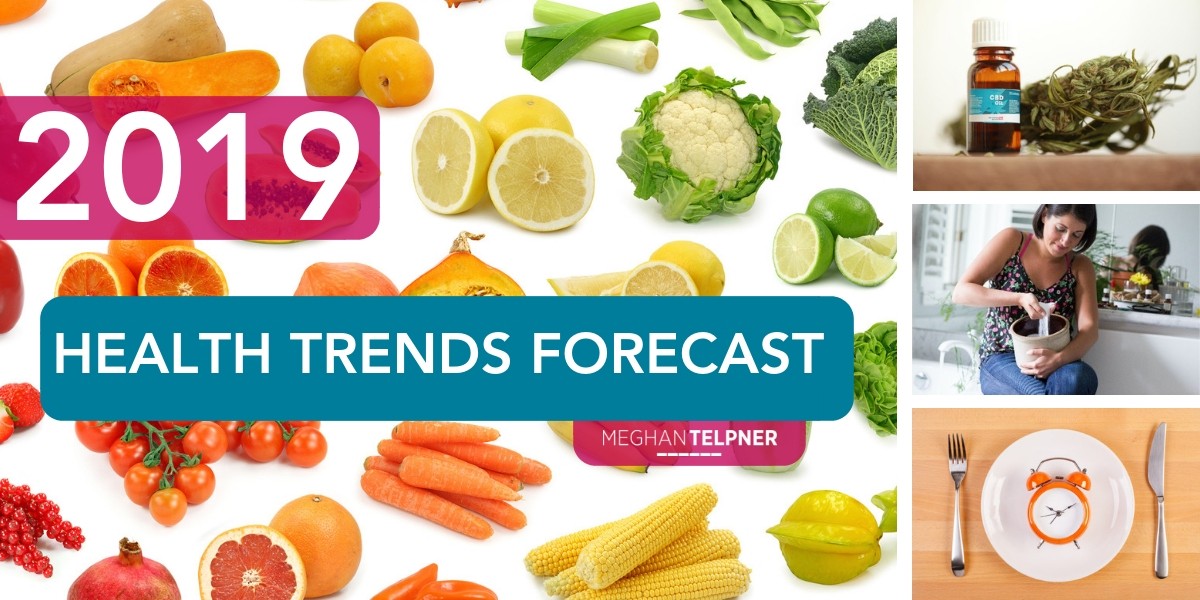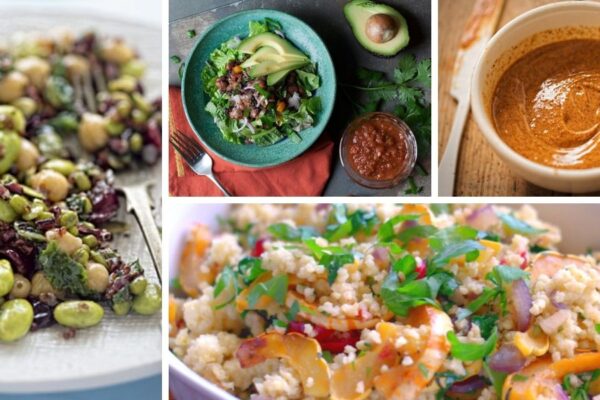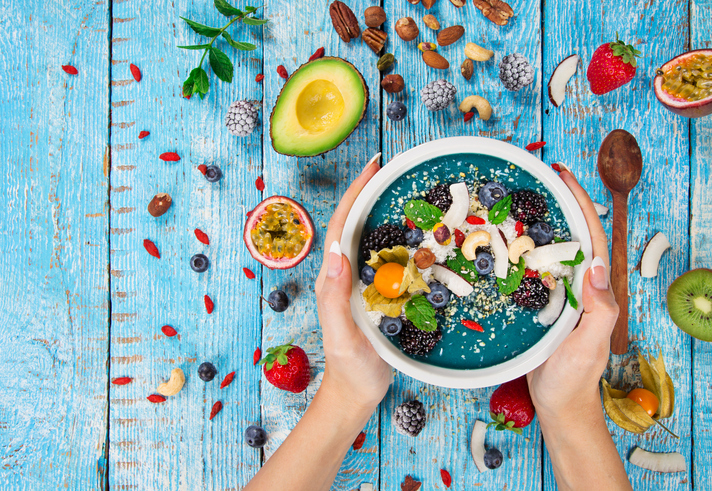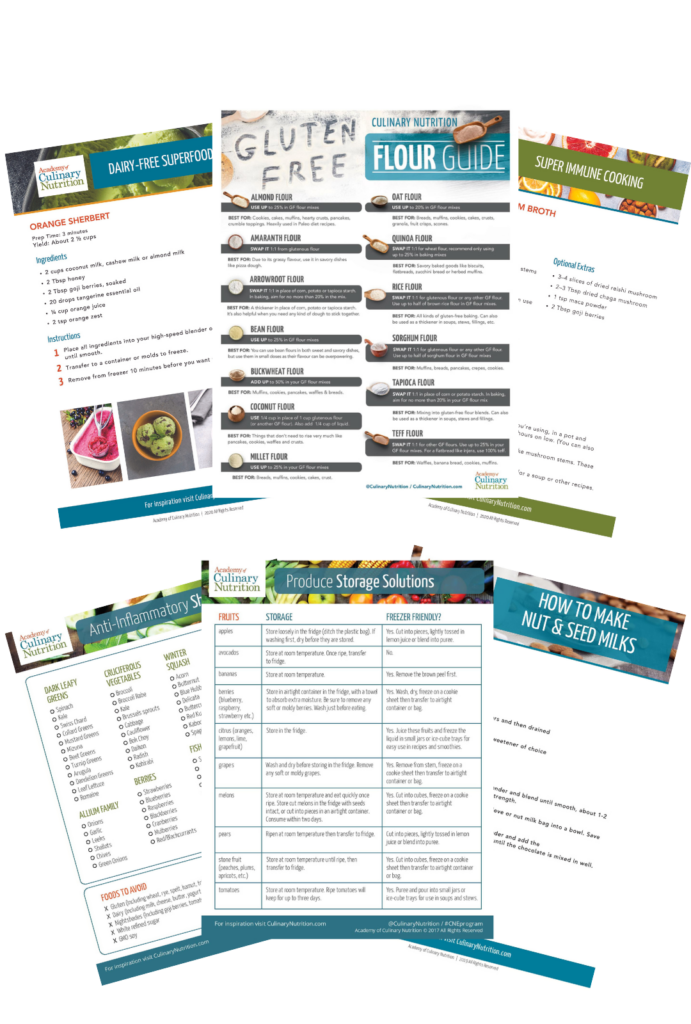Lectin-Free Diet: Will This Improve My Health?
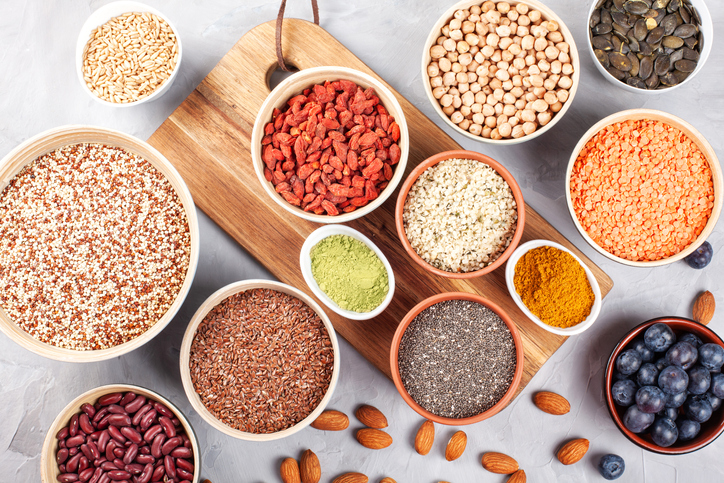
You know I am not one to jump on the fad diet train. I’ve seen many nutrition trends come and go over the last decade in this field. It seems that short of the celery juice craze, nothing has hit so fast and far-reaching as the new trend of avoiding all lectin-containing foods. Lectins and lectin-free diets have been brought to the forefront by Dr. Stephen Gundry, an MD and the author of The Plant Paradox. This book and follow-up cookbook, have made waves through the health world because it suggests that despite what we know about the health benefits of fruits, vegetables, grains and beans, he makes an argument that many plants are in fact toxic to us. Will a lectin-free diet improve your health, or is this just another unfounded health fad?
It seems, more and more, this blog is becoming a place to explain these dietary trends. I enjoy digging into these topics and helping you to make an informed choice. I know that for many this diet may be the answer. It’s also possible that one of the major benefits to this diet, as with so many, is that it requires the elimination of processed food, oxidized fats, gluten and sugar.
Is going lectin-free the key to resolving your health issue? Maybe. But also, very possibly, maybe not.
What Are Lectins?
Lectins are a family of proteins that function as part of a plant’s defense mechanism to protect it from predators. Meaning, they build in their own protection to keep from being eaten by animals. Lectins are considered an anti-nutrient (which I might add extends to what is contained in the soak water of chickpeas, often used as aquafaba in vegan desserts and baking). They are compounds that interfere with nutrient absorption or digestive enzymes. Lectins bind to carbohydrates in our cell walls and have a ‘sticky’ quality. Some experts claim that these proteins then cause a variety of health issues, including digestive issues and leaky gut, which can contribute to and prevent healing from autoimmune diseases.
Foods That Contain Lectins
Lectins are found in many plant and animal foods, but they are highly concentrated in:
- Grains (gluten and gluten-free grains)
- Beans
- Legumes (including peanuts)
- Nightshade Vegetables (tomatoes, white potatoes, peppers, goji berries, eggplant)
- Squashes and Pumpkins
- Corn
- Nuts
- Seeds
- Dairy
- Fruit*
*It is recommended to consume fruit in moderation only when in season
Lectins: Are There Health Concerns?
One of the most widely studied lectins is wheat germ agglutinin (WGA), a compound found in wheat that triggers the immune system, leading to inflammation and intestinal permeability (which is also known as ‘leaky gut’). Intestinal permeability is when our gut lining – normally meant to be strong and protective – develops holes, allowing particles to pass through into the bloodstream where they can cause an inflammatory and immune reaction.
It’s thought that lectins of all kinds, not just WGA, instigate these holes in the gut, causing a variety of digestive symptoms including gas, bloating and nausea, as well as the inhibition of digestive enzymes, a disruption of the beneficial bacteria in the gut and the loss of gut epithelial (gut lining) cells. It’s the destruction of the gut lining that’s of the most concern, potentially increasing the risk of and/or proliferation of autoimmune diseases.
Another well-known lectin can be found in kidney beans, called phytohaemagglutinin – it can be toxic to humans and cause symptoms similar to food poisoning such as vomiting, nausea and diarrhea. However, cooking kidney beans will get rid of it.
The tricky thing is there isn’t much in the way of human studies that show that lectin-free diets can address autoimmune diseases. One recent study, published by Dr. Stephen Gundry, put 102 patients with a variety of autoimmune diseases on a lectin-free diet for 9 months. Ninety-five of those patients no longer had immune or inflammatory markers at the end of the study period, and 80 patients were able to wean off of their drug treatments. This is certainly promising! However, more research is needed.
How to Eliminate Lectins: It’s Easier Than You Think
There are several ways that you can greatly reduce, eliminate or destroy the lectins in your food:
- Cooking
- Pressure cooking
- Soaking
- Sprouting (learn how to sprout at home here)
- Fermenting (this can reduce lectins by up to 95%)
These cooking methods are simple to do and easily destroy most lectins.
Lectins: Are there Health Benefits?
Sometimes, when a plant has a strong protective mechanism this can also benefit us too. A classic example of this are antioxidants, which are powerful plant compounds that can help protect us from free radical damage. And wild foods, such as wild blueberries or dandelion greens can be even higher than the cultivated version because these antioxidants serve as a protective mechanism out in the wild.
Lectins and Cancer Prevention
The protective ability of lectins may confer health benefits. Plant lectins have been studied for their ability to recognize and destroy cancer cells, have the potential to act as an anti-cancer therapy and can help with cancer detection. Lectins in mushrooms – which we already know have amazing immune modulating properties – have also been studied for their anti-cancer properties.
Lectins and HIV
Other research indicates that lectins can help stimulate bone cell growth and have the potential to prevent and treat HIV infections, as well as destroy any infections typically found in HIV patients.
Lectins and Blood Sugar Balance
Since lectins commonly bind to carbohydrates, some experts suggest that this makes them lower on the glycemic index, and low-glycemic eating has an array of health benefits you can read about here.
Should You Eat Lectin-Containing Foods?
As with many nutritional strategies, whether you choose to follow a lectin-free diet will depend on your unique health situation. While many of the popular healing diet protocols – particularly those diets designed to address autoimmune diseases – recommend removing a number of lectin-containing foods like grains, beans, nightshades and nuts, this is often for a multitude of reasons aside from the lectin content. In other words, lectins aren’t the driving force behind the negative impact some of these foods can have, particularly glutenous grains and flours.
As I’ve mentioned before, I assess diets on their sustainability for people as an ongoing lifestyle. While a lectin-free diet may be helpful as a therapeutic diet in the short-term, I question whether we can truly avoid lectins forever. And if we remove lectins, how do we know that it’s the lectins themselves that are the culprit? Perhaps it’s another component in the food that’s the issue, or some kind of nutrient deficiency, enzyme deficiency or other internal health problem that is producing symptoms. Therapeutic diets can be restrictive, but they are meant to be used to address the root cause and once that has been addressed, theoretically we should be able to re-introduce some healthful, unprocessed foods back into the diet.
Plus, when lectins are so easily neutralized by a variety of preparation methods like cooking, sprouting, and fermenting, why continue to fear them if they are gone? In my opinion, the potential health benefits of foods like fruits, vegetables, gluten-free grains, nuts, seeds, beans and legumes outweigh the potential health risks of lectins.
The Last Word On Lectins
Yes, removing lectins may improve our health, if they are at the root of an issue or trigger reaction for us. However, this is not going to be a miracle cure for all autoimmune and inflammation sufferers. Lifestyle will always play a part in healing and there is a lot required to heal the body these days. We must also consider the water we drink, the toxins in our home environments, physical activity and mental/emotional and spiritual wellbeing. Taking one aspect of a dietary protocol out of context of a wider customized program including lifestyle modifications rarely, if ever, results in the lasting healing we are seeking.
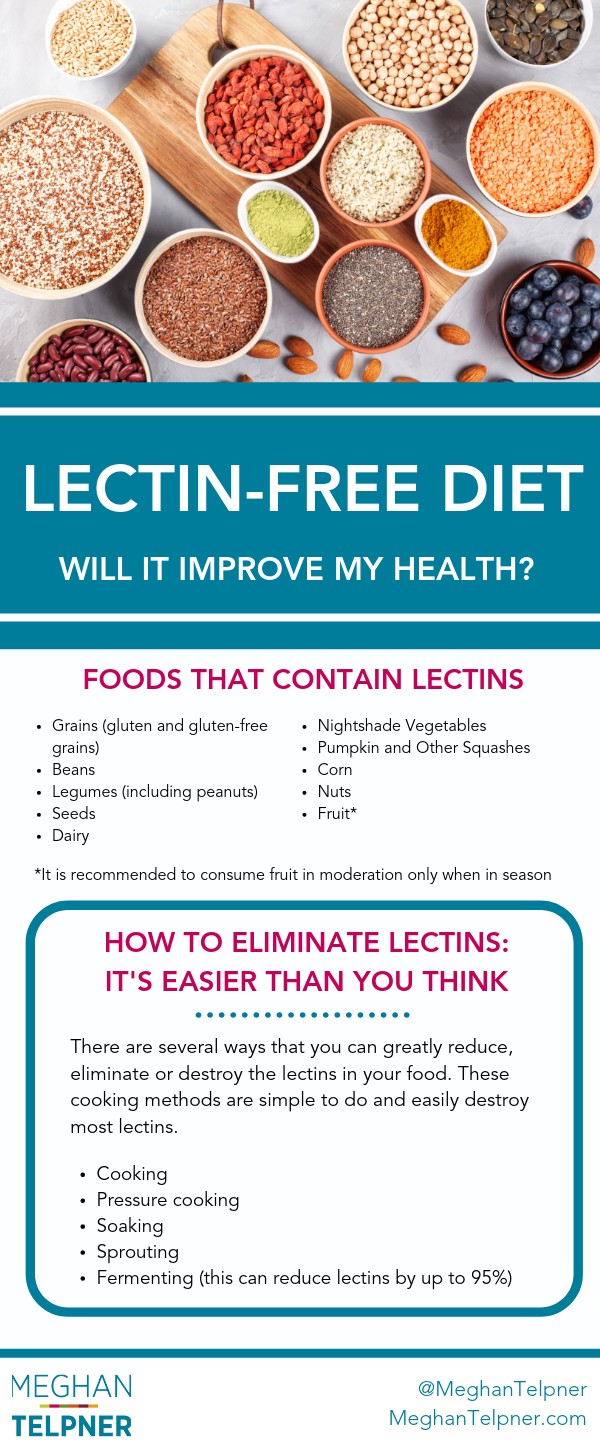
Free Resource Library
Enjoy more than 40 downloadable guides, recipes, and resources.















